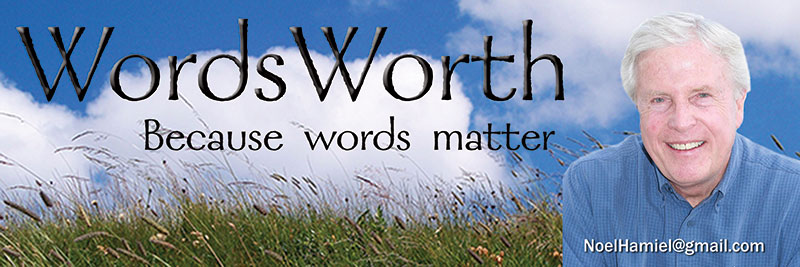“The difference between the right word and the almost right word is the difference between lightning and a lightning bug.” — Mark Twain
During the GOP debate last Thursday night, I was trying to pay attention to the words used – apart from the style of delivery and positions expressed by the candidates.
As the debate began, one of the moderators, Bret Baier, asked the candidates to “please go to your podiums.”
Did he really mean “podiums,” I wondered, or was he referring to the lecterns that were provided to each candidate.
Lecterns are handy. They afford protection from thrown tomatoes and other fruit, and they also contain a shelf for speakers’ notes. They do not, however, protect speakers from oral missiles, as when questioner Megyn Kelly asked Donald Trump why he disparaged women. The Donald was wounded, though not mortally.
A podium, on the other hand, is a raised platform – a dais – on which a speaker stands to give him elevation and prominence. When the television camera panned the debaters, it was clear that there was but one “podium” or raised platform, so Baier likely meant lecterns and not podiums.
Why is this important? When the meaning of words is extended, diluted, or corrupted, the language loses its ability to express something with explicitness or exactness. As time goes on, and podium and lectern are used interchangeably, the opportunity to make a distinction will be lost.
This change in word meanings happens all the time. As an example, what if one of the debaters – Trump would be the leading candidate – talked insultingly about the “enormity” of New Jersey Governor Chris Christie’s girth? Now it is true that Christie’s waistline is large. Some would say it is “enormous.” But to refer to the “enormity” of his waistline is to say that it is “evil,” which of course it is not.
“Enormity” means monstrous or outrageous. It also means something that “is a grave offense against decency.” The word is correctly used, for example, to describe the ‘Holocaust, as in, “the enormity of the crime against Jews.”
Today, it often is used interchangeably with “enormous.” A sports announcer some time back was describing the old Yankee stadium, with its center field fence measuring 461 feet from home plate. “The enormity of Yankee Stadium was something to behold,” he said.
I suppose only a true Yankee hater would feel that way.
Aug. 12, 2015
